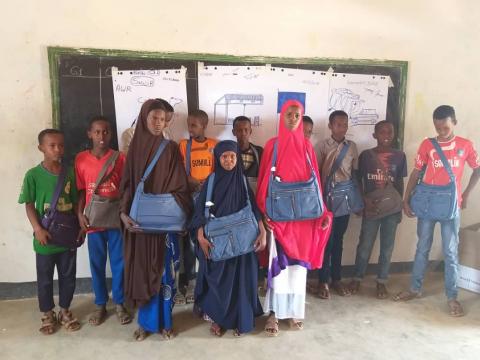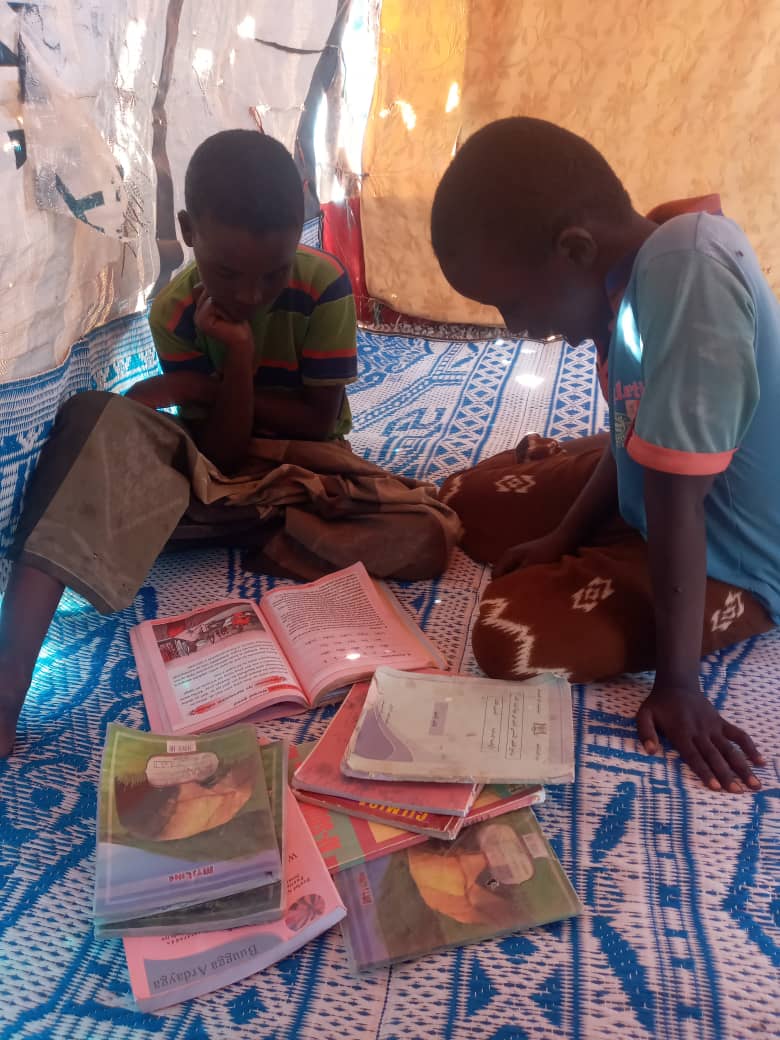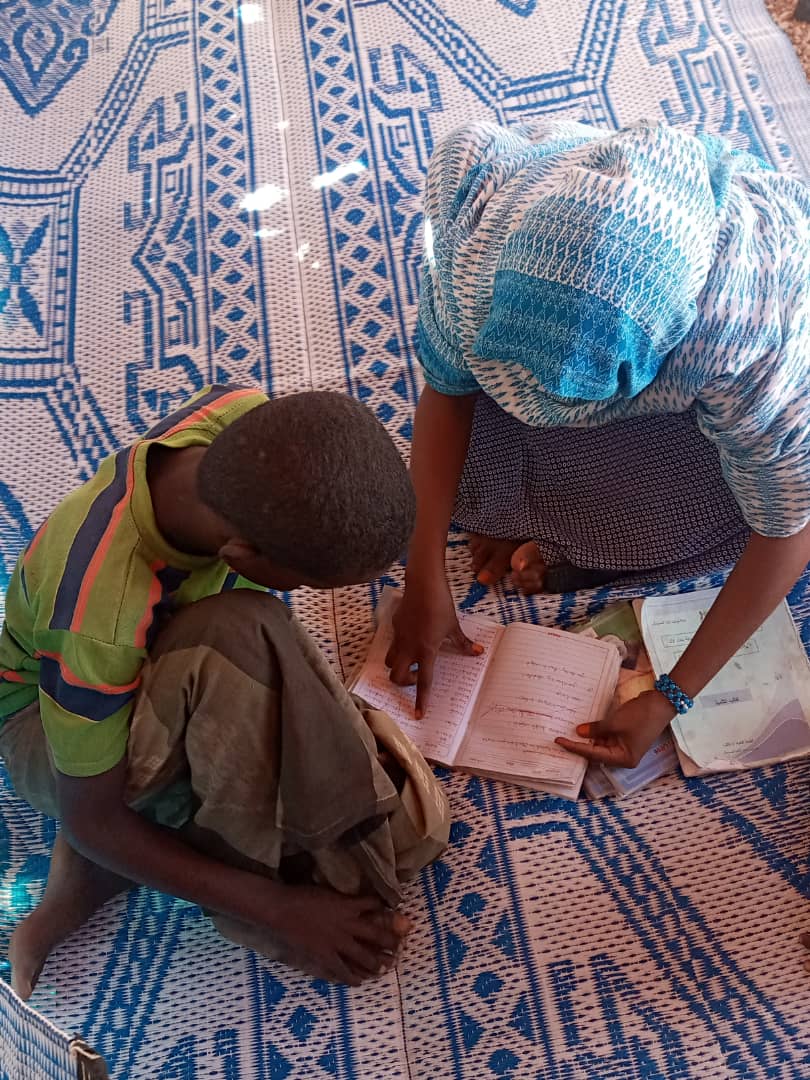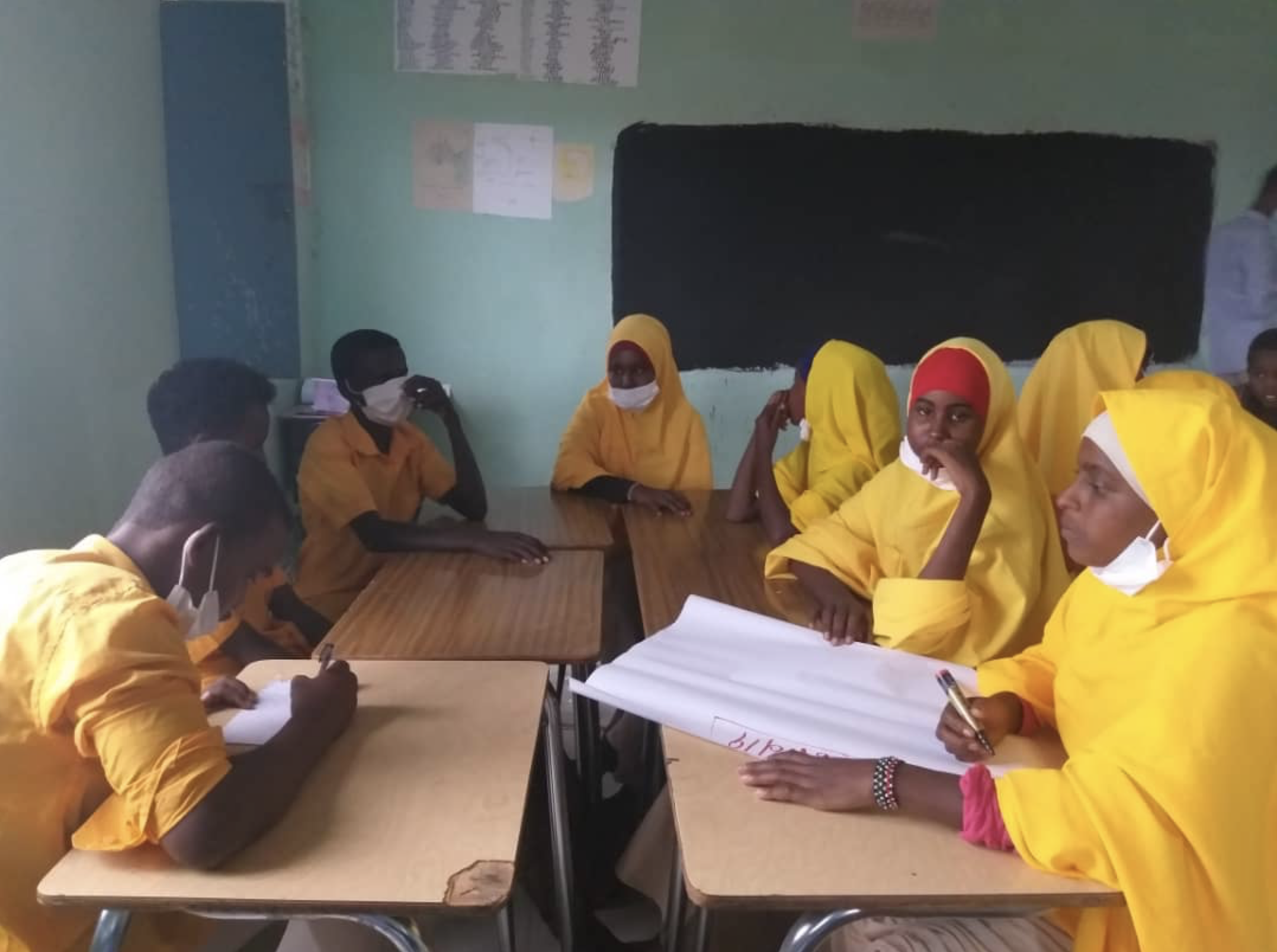Reading clubs turning new education page for Somali children

Somali children face many challenges in pursuit of education. Some of these include poverty, overcrowded classes, security and inequitable access to education, with culture favouring boys. This has really affected literacy levels, leaving less privileged children lagging behind their age-mates living in other parts of the world.
To help address these challenges, World Vision introduced reading clubs to encourage children to see reading as a fun and engaging activity not just in school but also at home. Despite limited materials, reading clubs strive to increase the availability of community resources to support literacy development.
Abdikhayr (13) is a young boy in class four at Yibaayil Primary School. He’s one of the members of a reading club in his community. His parents recognised the importance of education, and set up for him a reading corner in their house which he sometimes invites his friend and reading buddy, Ayuub, to come over to read and revise together.
“My parents have been very supportive. They have been guiding me on how to perform well in my studies. They also set up for me a reading corner in our house and provided me with some materials that I needed,” says Abdikhayr.

Reading Corners
Reading corners are creative places where children can practice play and reading. In a reading corner, there are books, games, and toys that all relate to literacy. These games and toys may include blocks with letters on them, flashcards, letter games and many other materials. It is also a resource for the parent, reading buddy or anyone helping the child to read, but also a place that the child can go to and have fun while learning.
From August to December 2020, 180 (80 male and 100 female) caregivers, parents, guardians were reached through reading awareness training during COVID-19 pandemic and its aftershocks. They were guided on how to set up simple reading corners at home to promote a reading culture at home.
Reading clubs are open to first, second and third-grade children or the equivalent, generally aged six to nine years old. The sessions are conducted weekly for 90 minutes. Each club consists of a maximum of 25 learners and two counsellors/facilitators who volunteer to help the children.
“Since I became part of the reading club, this has helped me a lot in my study and I have increased my interest in reading. I’ve learnt how to work and cooperate with my fellow students. I have improved in my reading, writing, vocabulary and how to communicate better.” Abdikhayr explains.
Even though students like him read textbooks in school, limited school budgets do not allow them to utilise these materials outside of school. Reading materials outside of the classroom are virtually non-existent, and often there are no children's books written in local languages. Reading clubs are their only opportunity to gain exposure to reading materials in their native language.
The clubs also support parents’ involvement in the learning process. “Usually, we organise with the children the topics to cover by following a set timetable. Sometimes there are lessons or assignments given by teachers which need me to sit with my son and go through together.” Abdikhayr’s mother says.

In Puntland, World Vision has established 10 Reading Clubs in 10 villages and trained 20 (15 male and five female) facilitators to lead learning sessions. To address learning challenges caused by COVID-19 and its aftershocks, 160 boys and 120 girls have so far participated in these sessions to help them catch up on reading skills since schools resumed after lockdown measures were lifted.
Reading Buddies

Additionally, World Vision also introduced a ‘reading buddies’ learning system, where younger students are paired with older ones in the upper grades who are more proficient in reading.
The benefits of establishing the reading buddies system include: older students act as role models to the younger ones, mentoring, building student and community relationships and bringing books to homes to read with younger students. So far, 160 students (80 boys and 80 girls) have been paired with reading buddies who not only help with reading activities at home, but have also supported in consistent school attendance of the young children post COVID-19 school closures.